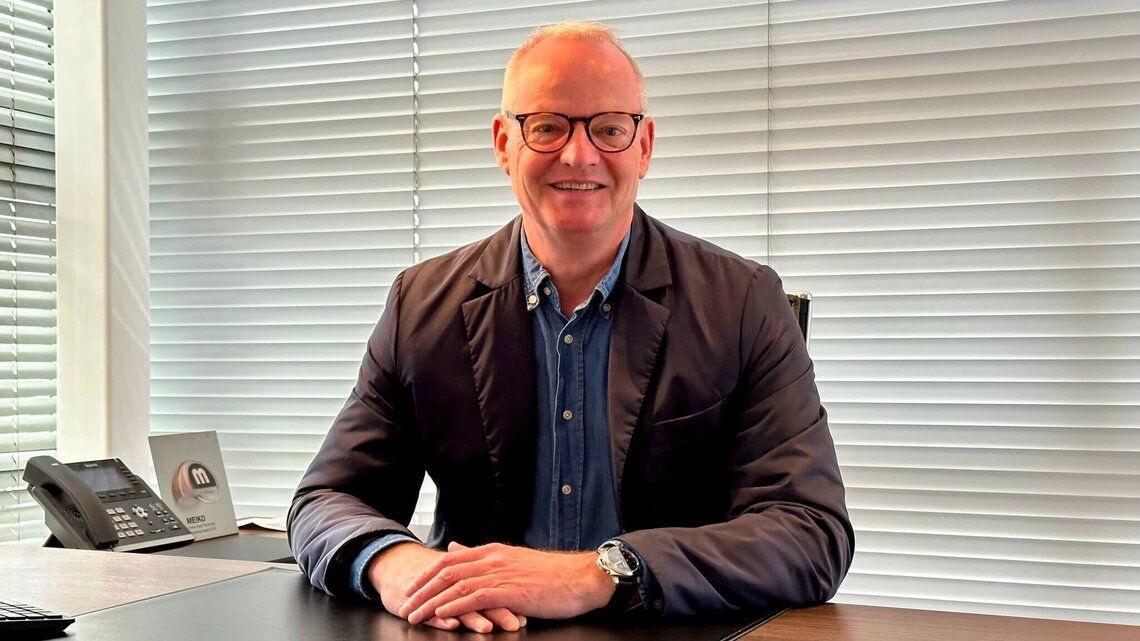Interview with MEIKO director Evert Dunk. "Good technical service is essential"
Evert Dunk has been responsible for MEIKO North West Europe since May 2023. After a career of more than twenty years at the global service provider Sodexo, he has been managing the MEIKO branch in Rotterdam for a year. How does he look back on his first year, what developments does he see in the market and how does MEIKO deal with them? Time for a conversation.
You have been working at MEIKO for almost a year now. How do you like it so far?
I like it very much. MEIKO is a wonderful company with a close-knit team, with a lot of experience and expertise. Quality comes first in our beautiful product portfolio and there is still a lot of room for growth.
Where is that growth in particular?
We see market demand increasing, for example from the Scandinavian countries for which we as MEIKO North-West Europe are also responsible. But also in our own country. On the one hand, due to the Single Use Plastics Directive, which requires dishwashing solutions for reusable plastic items. Not only cups, but also packaging. And on the other hand, we are also increasingly found when it comes to large, complex dishwashing projects, such as in hospitals, large offices and retail. These require technical solutions and competencies that we have in-house across the organization.
In addition, the food service market remains extremely important for MEIKO. A large part of our turnover is achieved here with our extensive range of dishwashing solutions, and we would like to keep it that way. For all our machines, we address current themes in the areas of sustainability, cost savings, ergonomics and automation. Our machines are becoming increasingly economical, smarter and easier to use.
But MEIKO is on the high side when it comes to price.
MEIKO offers high-quality machines, made from materials with which we can guarantee their service life. That is also sustainability. It is also important not only to focus on the purchase price, but to look at the costs of the machine during the entire period of use. The recently introduced UPster K basket transport machines, for example, consume 38% less water and 21% less energy, which means significantly lower operating costs.
In addition to growth in the market, you also see growth opportunities within the organization. What do you mean by that?
Good technical service is essential for customer satisfaction and growth. A machine that comes to a standstill causes serious disruption within a business process. And such an interruption costs time and money and has an impact on reputation. Not only on that of MEIKO, but certainly also on that of our customer, and we are fully aware of that. A sufficient number of service technicians and the associated work preparation and planning is therefore essential. That has been my focus since I started at MEIKO. Selling a machine is one thing, but your real value to a customer becomes visible when you anticipate possible disruption through our maintenance contract or, if a problem arises, you are there quickly and solve it.
How did you go about getting the staffing of service to the desired level?
In order to retain our employees and attract new colleagues, we have examined our entire process from recruitment and selection to onboarding and further development and made improvements where necessary. We have also invested in labor market communication, so that we can make ourselves even more visible as the positive and attractive employer that we are and where employee involvement is paramount. This has led to the hiring of a number of new colleagues, which we are very happy with. Our response times have improved as a result, creating the foundation for proactively supporting our customers and prospects.
There is a war for talent going on, especially when it comes to service engineers. How do you convince them to come and work for MEIKO?
MEIKO offers a technically challenging environment in which you will receive good guidance. We have our own MEIKO Academy and you can develop yourself, from working with smaller machines to very complex projects. In addition, we work from connection. Technical service, service support, sales, sales support, we operate as one team. And what is very essential, we create the conditions so that every employee can do his work well, on time and with pleasure.
Finally, what is it like to lead a technical company as a non-techie?
First of all, by admitting that I indeed have no technical background. That gives me the advantage of being able to ask questions. I have always worked from the intention of understanding activities and their coherence, in order to determine where critical areas for improvement are. And I do this from a connection with genuine interest in our employees and customers, in what concerns them, in how they think things can be improved. That's why I show up a lot in the workplace and my door is always (literally) open. Satisfied employees bring us success, and we work hard on that.
